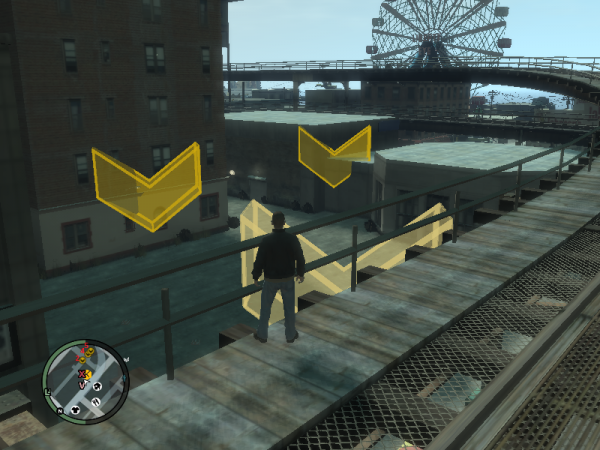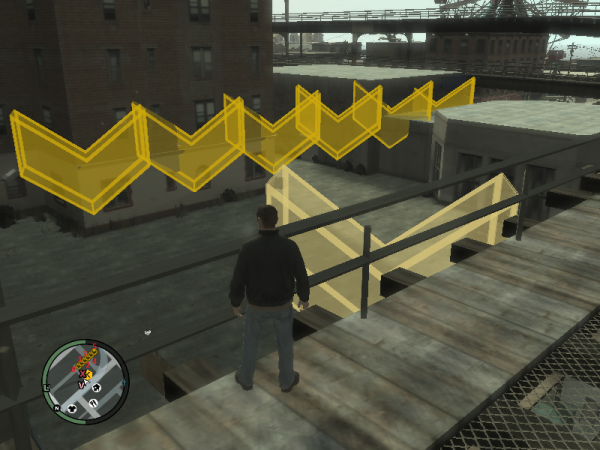CHANGE BLIP DISPLAY
Jump to navigation
Jump to search
| Number of parameters: 2 | ||
|---|---|---|
| Parameter # | Type | Description |
| 1. | integer | blip_handle |
| 2. | integer | blip_display |
| Return value: | ||
| Type | Description | |
| None | ||
Changes how a blip is displayed in both the radar/map and the world.
Know values for blip_display
| Value | Is it drawn on the radar/map? | Is it drawn on the world? |
|---|---|---|
| 0 | NO | NO |
| 1 | NO | NO |
| 2 | YES | YES |
| 3 | NO | NO |
| 4 | YES | YES |
| 5 | YES | NO |
These values were infered doing in-game tests. Pay attention to the blip_display value (shown in the radar) used for each contact blip (colored in dark yellow) and how the blips are displayed on the second image relative to the first one.
The blips were created in a for loop that also changed their blip_display value:
/*
While you may see 7 blips here this code is responsible for creating
only the "contact blips" (the ones in the background)
*/
//The display values were defined in an enum.
//They vary from 0 to 5 with BLIP_DISPLAY_0 being 0 and BLIP_DISPLAY_5 being 5
Blip blip_array[6];
eBlipDisplay display_array[] = {BLIP_DISPLAY_0, BLIP_DISPLAY_1, BLIP_DISPLAY_2, BLIP_DISPLAY_3, BLIP_DISPLAY_4, BLIP_DISPLAY_5};
for(int i = 0; i < 6; i++)
{
f32 offset = -8.0 * float(i);
//For some reason "contact blips" and "coord blips" (light yellow, on the foreground) are gigantic
AddBlipForContact(952.727, -508.730 + offset, 20.0, &blip_array[i]);
ChangeBlipDisplay(blip_array[i], display_array[i]);
}
